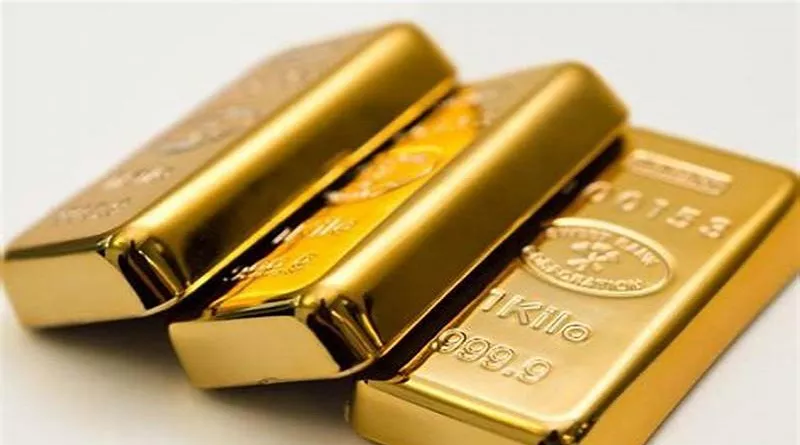The world of investments offers a diverse array of choices, with gold futures and commodities standing out as prominent options. While both fall under the broader category of commodities, they represent distinct avenues with unique characteristics. In this detailed guide, we’ll explore the differences between gold futures and commodities, unraveling their features, potential returns, and the considerations investors should ponder when making investment decisions.
1. Understanding Gold Futures
Derivative Nature:
Gold futures are financial contracts where investors agree to buy or sell gold at a predetermined future date and price.
These contracts derive their value from the underlying asset, gold, and are often used for hedging or speculative purposes.
Market Sensitivity:
Gold futures are sensitive to various market factors, including economic indicators, geopolitical events, and inflation.
Investors often turn to gold as a safe-haven asset during times of economic uncertainty.
2. Exploring Commodities
Diverse Asset Class:
Commodities encompass a wide range of tangible assets, including precious metals, energy, agricultural products, and more.
Investors can gain exposure to commodities through various instruments, such as commodity futures, exchange-traded funds (ETFs), or commodity-focused mutual funds.
Market Forces Impacting Commodities:
The prices of commodities are influenced by supply and demand dynamics, geopolitical events, weather conditions, and global economic trends.
Commodities, as a group, can provide diversification benefits to a portfolio.
3. Potential Returns and Risks
Return Potential of Gold Futures:
Gold futures can offer potential returns, especially during periods of market volatility or economic uncertainty.
However, their leveraged nature exposes investors to higher risks, making them suitable for those with a higher risk tolerance.
Diverse Returns in Commodities:
Commodities, as a broader asset class, exhibit diverse returns, with different commodities responding to various market factors.
Investors can select commodities that align with their expectations and risk preferences.
4. Liquidity and Accessibility
Liquidity of Gold Futures:
Gold futures are highly liquid, allowing investors to buy or sell positions relatively quickly.
This liquidity is appealing for those who value flexibility in adjusting their investment positions.
Accessibility of Commodities:
Investing in commodities can be achieved through various instruments, such as futures contracts, ETFs, or mutual funds.
These instruments provide accessibility to a diverse range of commodities without the need for direct ownership.
5. Factors to Consider When Choosing
Investment Goals and Risk Tolerance:
Understanding investment goals and risk tolerance is critical.
Gold futures may appeal to those seeking safe-haven assets, while commodities, as a group, can offer diversification benefits.
Market Conditions and Economic Outlook:
Evaluating current market conditions and economic outlook is essential.
Gold futures may shine during economic uncertainties, while specific commodities may thrive under certain economic conditions.
Frequently Asked Questions
Q1: How do I invest in commodities other than gold?
Investors can access commodities through various means, including commodity-focused ETFs, mutual funds, or direct investment in commodity futures. Each method comes with its own set of considerations.
Q2: Are commodities more volatile than gold futures?
Commodities, as a diverse group, can exhibit varying levels of volatility, with some being more volatile than others. Gold futures, while influenced by market factors, are often considered a safe-haven asset, providing a degree of stability.
Q3: Can I use commodities and gold futures for portfolio diversification?
Yes, both commodities and gold futures can contribute to portfolio diversification. Commodities, as a group, offer exposure to different sectors, while gold futures may act as a hedge against economic uncertainties.
Q4: Do geopolitical events impact the prices of both gold futures and commodities?
Yes, geopolitical events can influence the prices of both gold futures and commodities. Global tensions, political instability, or trade disputes may impact supply and demand dynamics, affecting prices.
Q5: How do interest rates affect gold futures and commodities?
Interest rates can impact the performance of both. Rising interest rates may affect the appeal of non-interest-bearing assets like gold, and they can influence financing costs for commodity producers, affecting commodity prices.
Q6: Can I invest in commodities without using futures contracts?
Yes, investors can choose from various instruments, such as commodity-focused ETFs or mutual funds, to gain exposure to commodities without directly engaging in futures contracts.
Q7: Are commodities influenced by macroeconomic trends?
Yes, macroeconomic trends, including economic growth, inflation, and global demand, play a significant role in influencing commodity prices. Understanding these trends is essential for commodity investors.
Q8: Are there tax implications for gains in gold futures and commodities?
Tax implications can vary, and investors are advised to consult with tax professionals. Gains from gold futures and commodities may be subject to different tax treatments based on factors like holding periods and investment structures.


